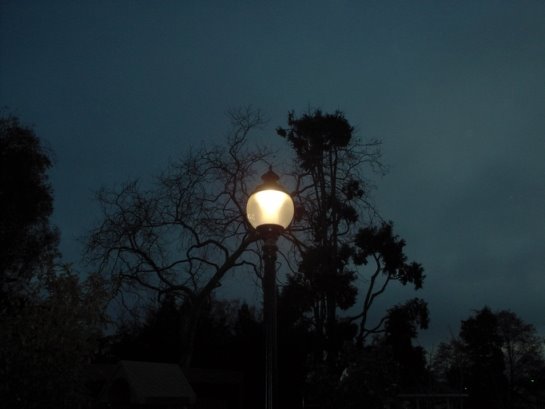
These really are just notes, put down as they come up:
Sholto Byrnes interviews Daniel Dennett in the New Statesman.
First and most essential is the distinction between ideas in competition in the abstract realms where ideas exist, like mathematical theorems or physics laws, and ideas in competition in the real world as badges and banners, as flags and codes and all the other impedimenta of what are often excuses to differentiate between competing groups of animals, human animals, who need an excuse because they need the moral architecture excuses fit into to preserve their integrity as groups, and they need the competition because they're animals who owe their primacy to a fierce competitive dynamic. The uniforms of the armies don't mean much of anything beyond "us" and "other".
The participants slip and slide back and forth between the abstract and the pragmatic, both sides do, and not only do they do that but their increasingly intense and urgent clamor creates a polarity that forces the rest of us to come down on one side or the other, with nothing, or very little in between.
Dennett says that morality can be derived from human nature, that religion is not necessary for moral principles. It's true theoretically. But the two points that matter don't get addressed.
Where are those human-nature-derived moral principles?
How do the common people get hold of them?
And most importantly, this is based on the fiction that human nature is some fixed constant that can be referred to by succeeding generations of emancipated humanists.
When every provable datum that comes out of the biological sciences says we're no different from any other animal, and our natures are purely and merely a question of what we are now, at this moment, here. We can trace our ancestry back to a primate the chimpanzee can also claim. Giving us the prospect of human nature and chimpanzee nature being synonymous. The truth is it was for a time, then, and then it diverged. Became what we are, this human nature, and what the chimpanzee is. But the process that produced those distinct species has never stopped. This is the lesson of Darwinian evolution.
So moral principles derived from something called "human nature" will never be solid. And given the bizarre and grotesquely inhumane "research" carried out on other primates in the name of science, the danger of losing any sense of a higher moral code seems too great to risk.
Dismantling superstitious religion to remove the damaging handicaps of empty dogma isn't a small thing, but as with our assaults on the natural world, too many of which had immediate beneficial short-term goals as their only moral guidelines, we can expect to lose things we as yet don't understand, and it may be that what we lose will prove to have been far more necessary than the profoundly irritating nonsense that's so visibly a part of current iterations of fundamentalism and its idiotic progeny.
I watched with growing unease the constant smug ridicule of fundamentalist politics as the movement it created and amplified moved steadily toward dominance in the US.
It was as though there was going to be some kind of end-of-term exam, at which point all those boasting delusional nitwits would be forced to commit their nonsense to paper and the judgment of the academic authorities - at which point they would fail and smarter more knowledgeable students would pass and that would be that.
Instead we have the inexorable drawing near of the Virtual Apocalypse, whose effects and aftermaths will be indistinguishable from the real thing. What difference does it make if the prophecies of Revelation are self-fulfilling or genuine? What matters is the world on fire. What matters is what we are against the nightmare of collapsing human systems that have sustained our progress and the comforts at least some of us enjoy.
What matters is, if you take away the bonds of moral behavior you have to replace them with something equally strong and effective, or you get dystopia.
It's not enough for Dennett to say we'll do fine with moral principles derived from our steadily more accurate understanding of human nature. Because for one thing human nature is shape-shifting, amorphous, and as fluid as the rest of creation; and because in a population this big, moving at a constantly increasing rate, there's no time for rethinking and repurposing - the inertia and momentum's too great.
The only positive I can suggest, against the bitterness and wounding dissension of both sides, is that there was a time, in fact most of our history was lived in that time, when science - as it really is - the unbiased search and investigation for truth about the world around us - and religion as it really is - the codification of inspired guidance and a record of the attempts to converse with what already exists in the world around us - were both helping, and neither was in conflict with the other. This sounds naive, but the images that shape it are anything but simple and childish.
In a harsher world than most of us have ever known the accurate use of tools and knowledge of the physical world was anything but abstract and leisurely; and the ineffably origined but durably accurate rules of behavior, that most people understood only as things that were done because that's how they were done, was often all that kept us together; both of those ways of being kept us alive and whole and human. Neither of them alone would have done it.


0 Comments:
Post a Comment
<< Home